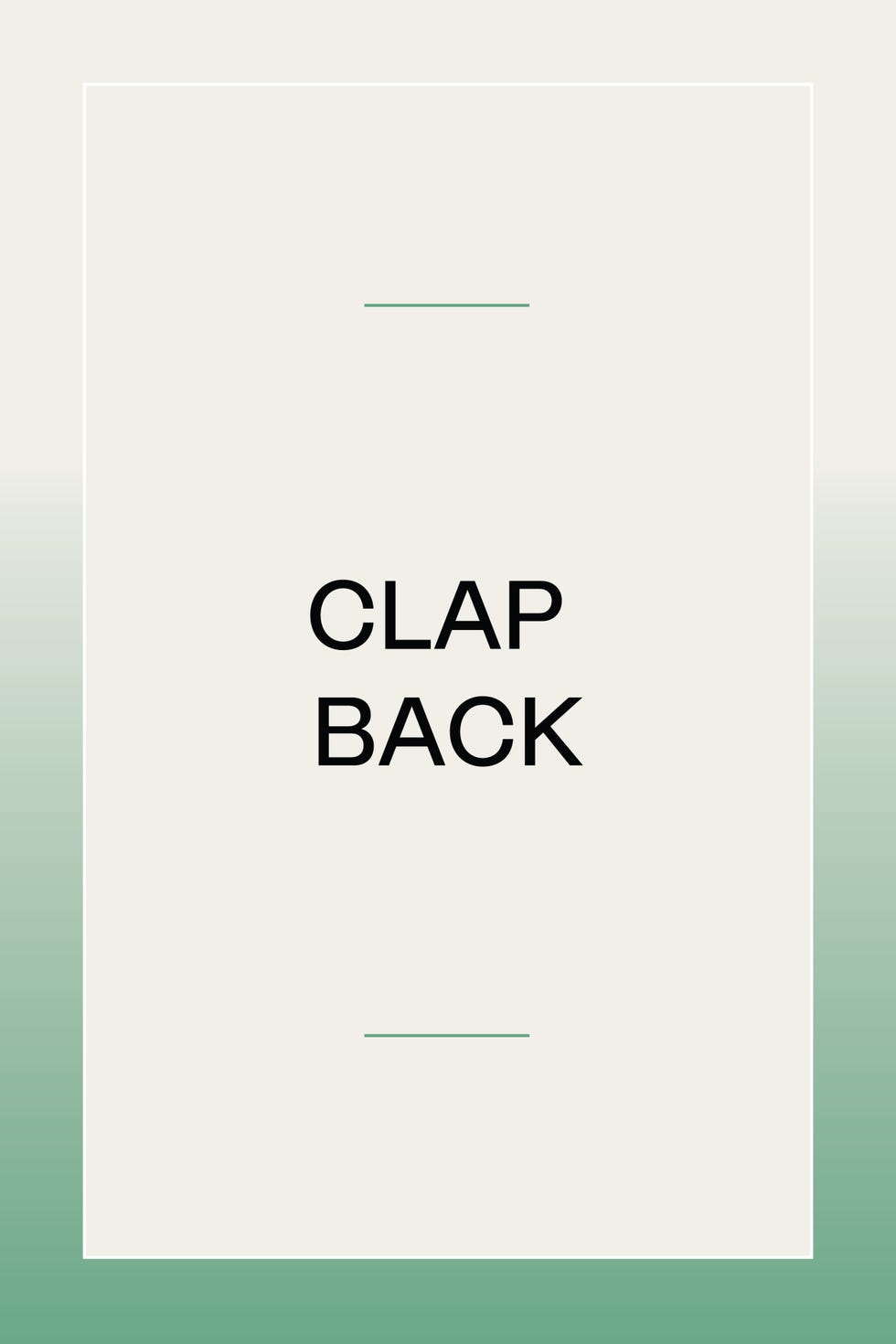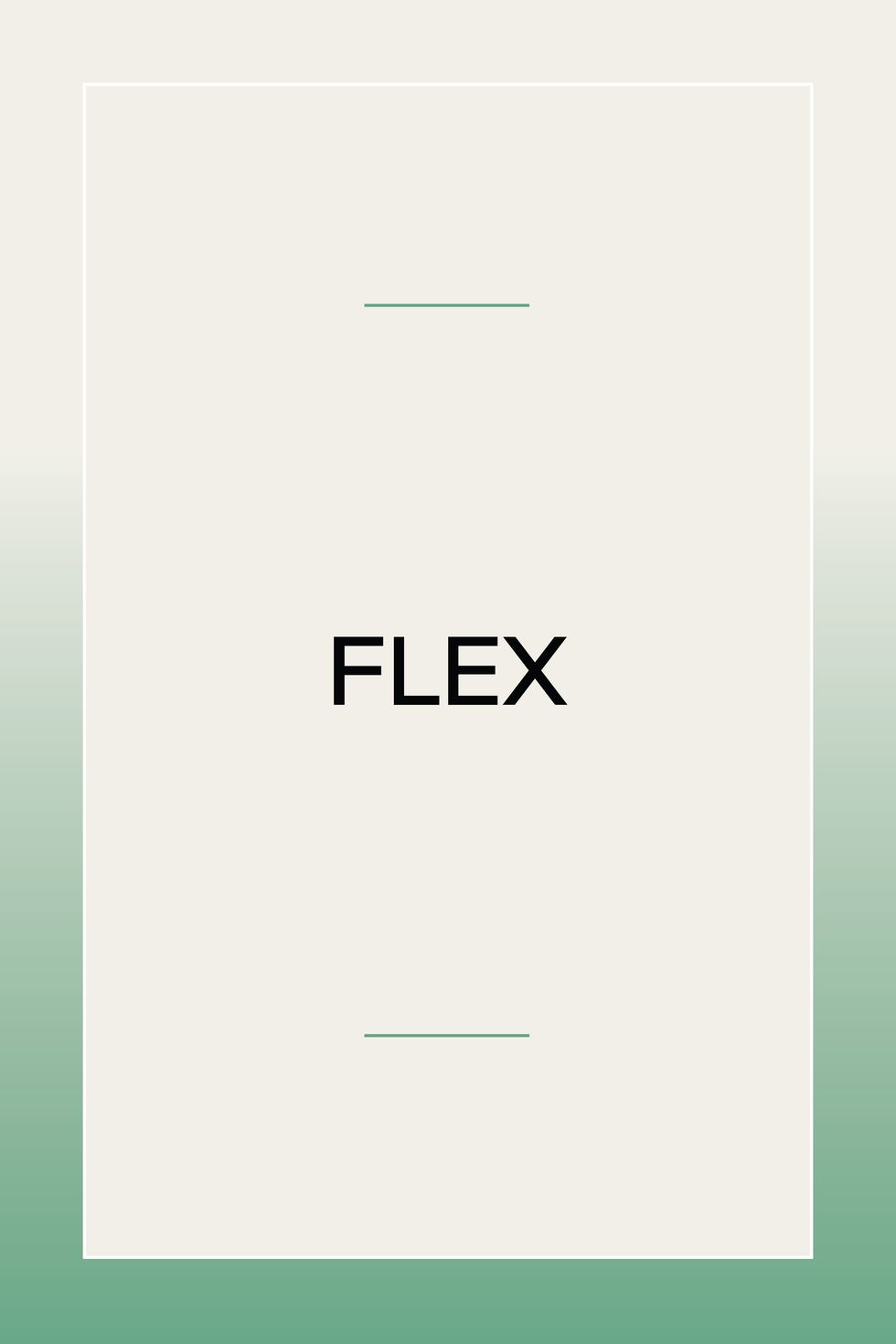Advertisement - Continue Reading Below
1
Clap Back

Advertisement - Continue Reading Below
2
Flex

Are you feeling fabulous about yourself? Or have you created something you're proud of? Now is your time to flex. Instead of flexing a muscle, you're showing off your accomplishments. "Flex" originated in Black culture in the '90s, according to Dictionary.com, and is often used in rap songs. Ice Cube was the first rapper to incorporate it in a song, with 1992's "It Was a Good Day."
The term took on new meaning in 2014 thanks to the Rae Sremmurd song "No Flex Zone," which described a place where you don't feel compelled to "flex," but rather feel comfortable to just be yourself. Related to this term is the phrase "weird flex but OK," used as a response to a brag that's considered strange.
Advertisement - Continue Reading Below
3
Cheugy
Cheugy, pronounced "chew-gee," got its own write-up in the New York Times. The Gen-Z term, which gained popularity on TikTok, describes anything that's considered uncool, untrendy, or people who deliberately stick to "older" trends. The term was coined by 23-year-old Gaby Rasson and was used among her friend group before it became widely known. A few things that are considered cheugy by the originators? Anything emblazoned with the word "girlboss;" wooden signs with inspirational quotes; Friends or The Office merch, or UGG boots.
Advertisement - Continue Reading Below
4
OK Boomer
Generational tension is eternal and universal. "OK Boomer" is a term born of that tension. According to Vox, the earliest use of the phrase dates back to a 2015 thread on 4chan, but it gained popularity on TikTok in 2020. Most often deployed as a meme, the term points to differing values between Gen Z and Baby Boomers. It essentially boils down to: "I disagree with you, but I can't be bothered to argue. Keep your opinions." The term "OK boomer" is, in short, both an expression of frustration and a way to end an argument.
Advertisement - Continue Reading Below
5
Ghosted
Say you went on a date with someone you met online. You thought things were going well—and then they never responded. Unfortunately, you've been ghosted. This term emerged from the online dating landscape, and describes a romantic partner who withdraws suddenly, back into anonymity (like a ghost). Ghosting is rejection without any concrete explanation as to why you're being rejected. The term became commonplace during the rise of online dating, to the point where it got its own New York Times explainer in 2015. Today, the phenomenon is so ubiquitous it even inspired a thriller of the same name.
Advertisement - Continue Reading Below
6
High Key
High key is the opposite of low key, another slang term with roots in the hip-hop community. Low key is used when you want to keep something chill. High key, on the other hand, elevates the meaning of the sentence—you say it when you want to be heard. For example, say you were James Bond in the middle of a movie, right when things were getting tense. You could say, "I am high key stressed right now."
Advertisement - Continue Reading Below
7
Vibe
This term actually isn't new—according to Mirriam Webster, the first known use of "vibe" was 1967. Dictionary.com says that the association between "vibrations" and a source of positive energy goes back to 1983. In the '60s, the term "good vibes" was popular (as evidenced by the 1966 Beach Boys song "Good Vibrations").
The word "vibe," as opposed to "vibes" or "vibrations," is used commonly today. If we want to get technical, "vibe" can be used as both a noun and a verb. When it's a noun, "vibe" describes the distinct emotional impression of a place, gathering, or even a person. It's the feeling you get after you leave, and you're reflecting (i.e. "that place had a spectacular vibe" or "this room has a weird vibe"). When a verb, "vibe" means to kick back and hang out, or to get along (i.e. "she and I were vibing on our date").
Or, you can say, "It's a vibe," referring to the specific emotional atmosphere or sensation you find yourself in.
Advertisement - Continue Reading Below
8
Sus
You know when something (or someone) doesn't seem right, but you can't quite identify why? That, friends, is "sus." This slang term is a shortening of "suspicious."
Advertisement - Continue Reading Below
9
Squad
Your besties. Your girls. Your buddies. Your squad. Whatever you call your closest team of loved ones works. But "squad" is the term du jour to describe a friend group.
Advertisement - Continue Reading Below
10
Glow Up
"Glowing up" is like the upgraded version of "growing up." As you age, you only become more fabulous. The staggering transformations associated with glow-ups are often accompanied by photographic evidence.
Advertisement - Continue Reading Below
11
Tea
Tea is all about exchanging hot gossip. You can get tea, spill tea, and give tea. Often, the term is simply interchangeable with the letter “T." This slang term—like so many on this list—derives from '80s and '90s ball culture, which is where LGBTQ people performed in drag competitions to celebrate their queerness. John Berendt’s 1999 Midnight in the Garden of Good and Evil is often cited for its early use of the term as well.
Advertisement - Continue Reading Below
12
Skrt
As Urban Dictionary points out, this word is used to describe the sound tires make when you stop unexpectedly. In conversation, it's a synonym for "stop." If a friend is gossiping and you'd like them to revisit part of the story, for example, you can quickly interject with "skrt!"
Advertisement - Continue Reading Below
13
Damn, Gina
Use this phrase if you’re either surprised by something or want to express approval. If someone finally earned their PhD, for instance, you could say, “Damn, Gina. Look at you!” It’s a throwback to Martin Lawrence’s ‘90s sitcom Martin, in which he’d regularly use the phrase when addressing his wife Gina (Tisha Campbell-Martin).
Advertisement - Continue Reading Below
14
Shook
While the term became popularized in '90s hip-hop and R&B music, it's technically old English, the past tense of shake. To feel shook is to be shaken up by something, for better or worse. The 2017 clip of comedian Christine Sydelko saying "I am shooketh!" brought it into the mainstream.
Advertisement - Continue Reading Below
15
Salty
This has nothing to do with the ingredient. The actual definition of the word can be used to describe something witty, racy, coarse, and humorous—and so folks use salty in relation to bitter behavior. If someone is acting salty towards you, they are likely upset.
Advertisement - Continue Reading Below
16
Woke
If you’ve kept up with the latest political headlines and aren't afraid to have an opinion against them, you’re likely “woke.” The term also originates in Black culture, and Erykah Badu's "Master Teacher" is believed to be where it was uttered for the first time in the mainstream. You might have also heard Congresswoman Barbara Lee use it in 2017. “We have a moral obligation to ‘stay woke,’ take a stand and be active,” she said, which got her quoted in the dictionary.
Advertisement - Continue Reading Below
17
Mood
This picked up steam around 2015, when memes took off in the Internet. According to the Daily Dot, mood specifically is derived from Black culture and it's used next to a meme, video, or photo to emphasize that something is relatable. This feel-good clip of Lisa and Bart Simpson dancing, for example, is a mood.
Advertisement - Continue Reading Below
18
Bye, Felicia
If you’re tired of putting up with someone, tell them, “Bye, Felicia!” It’s a way of dismissing them or their request. In 1995’s Friday, Ice Cube used the term in a scene during which his character responds to Felicia’s (Angela Means-Kaaya) unapproved request to borrow Smokey’s (Chris Tucker) car.
Advertisement - Continue Reading Below
19
Receipts
It's all about accountability here. Asking someone to show you the receipts essentially means you want proof. As Slate points out, the term is borrowed from Black culture.
Advertisement - Continue Reading Below
20
Beat
This slang term isn’t as aggressive as it sounds. “Beat” can be used as a verb or adjective, and it’s all about beauty. To beat is to apply makeup, and if someone is described as being “beat,” it means they either applied their makeup well, or just applied a lot of it. Used in a sentence as a verb: “I have to meet the parents tonight so I’m going to beat my face.” You'll find examples of "beat" in the ball culture documentary Paris Is Burning.
